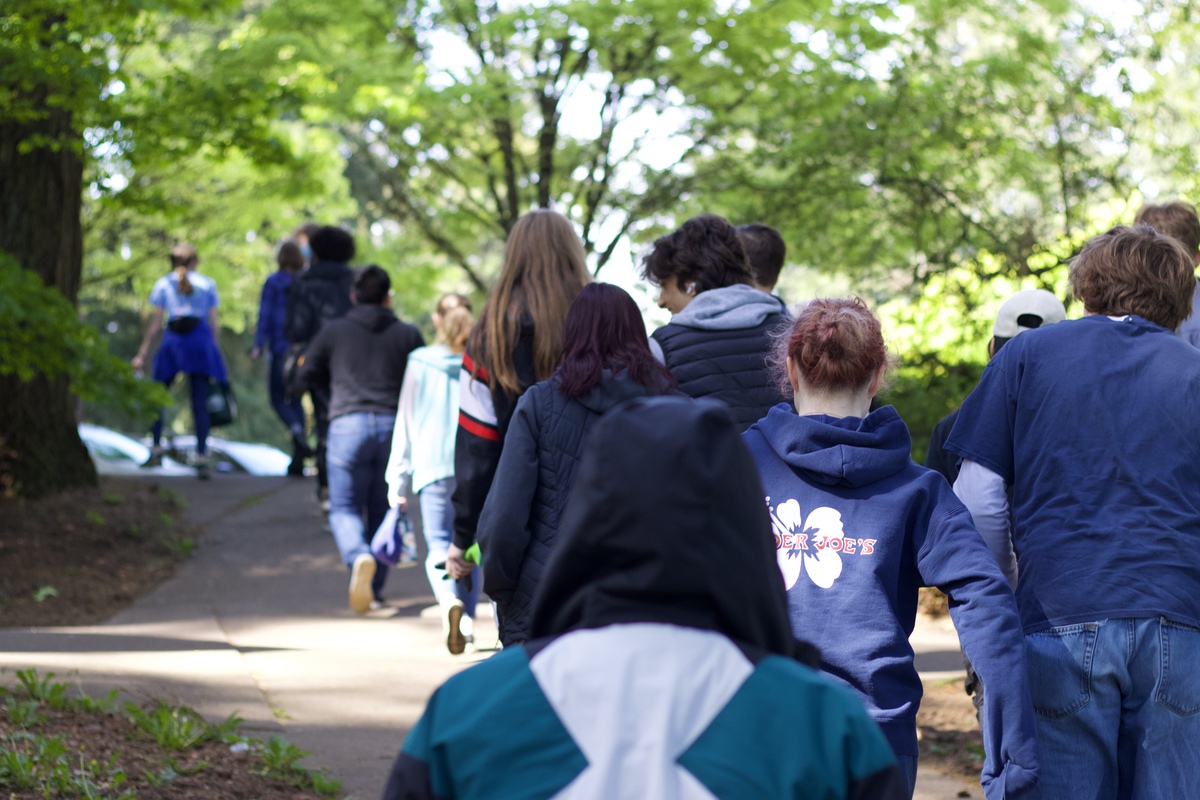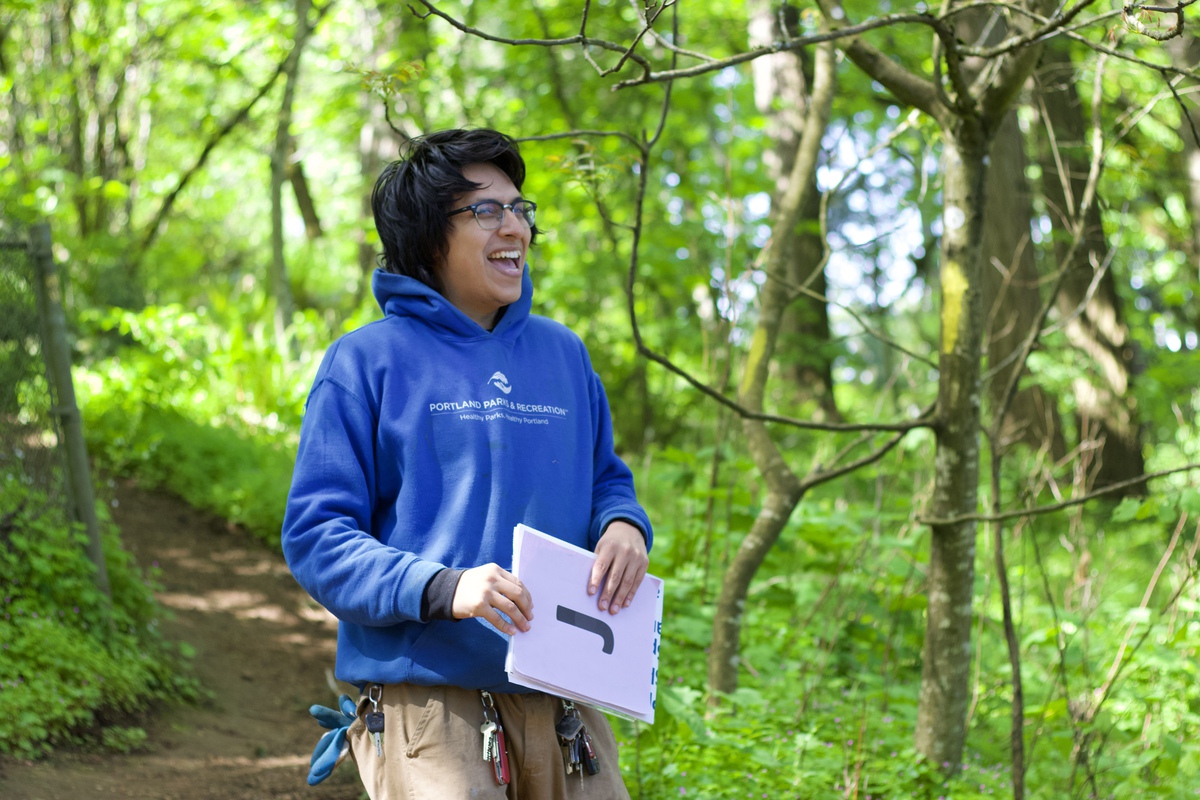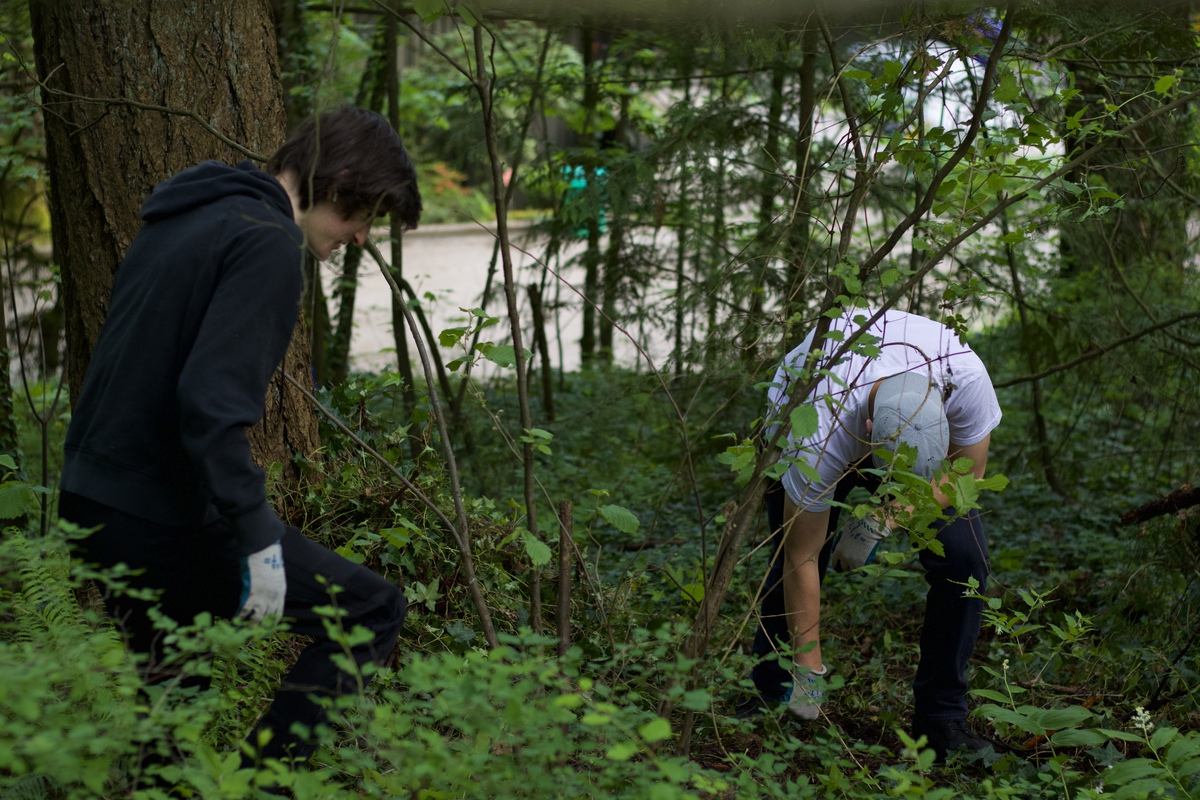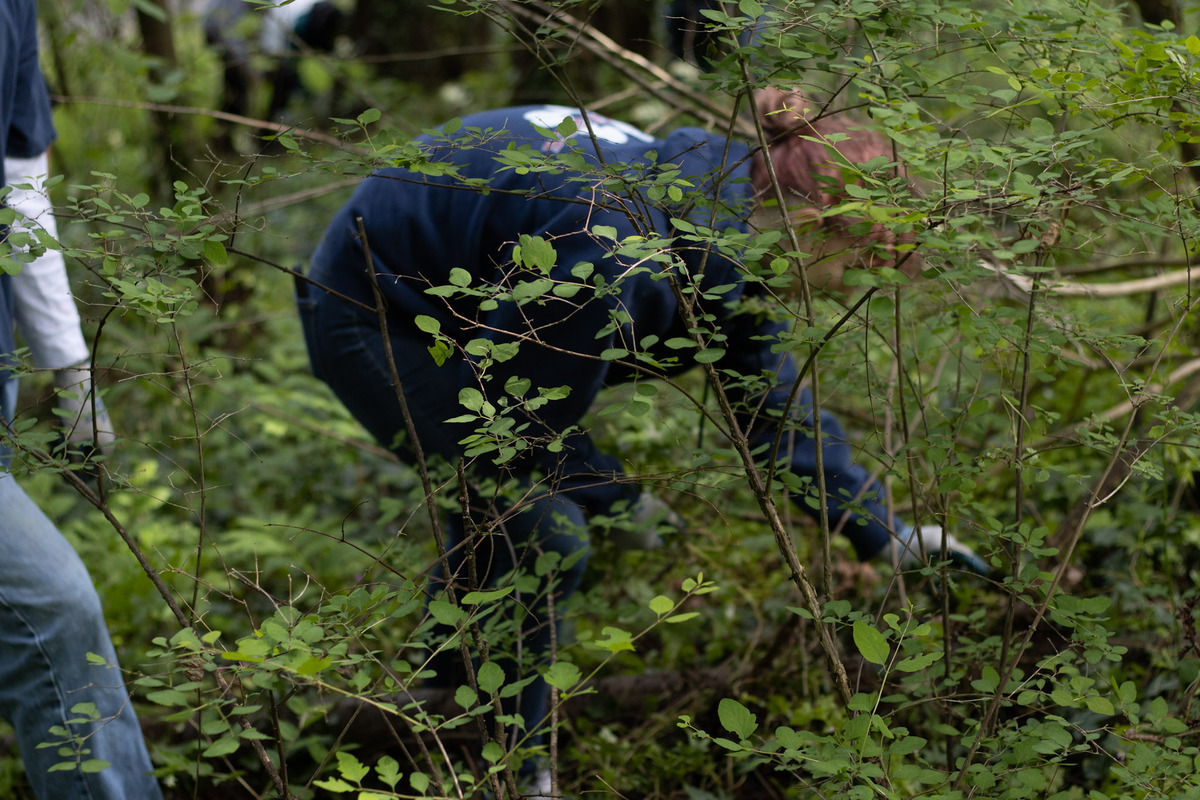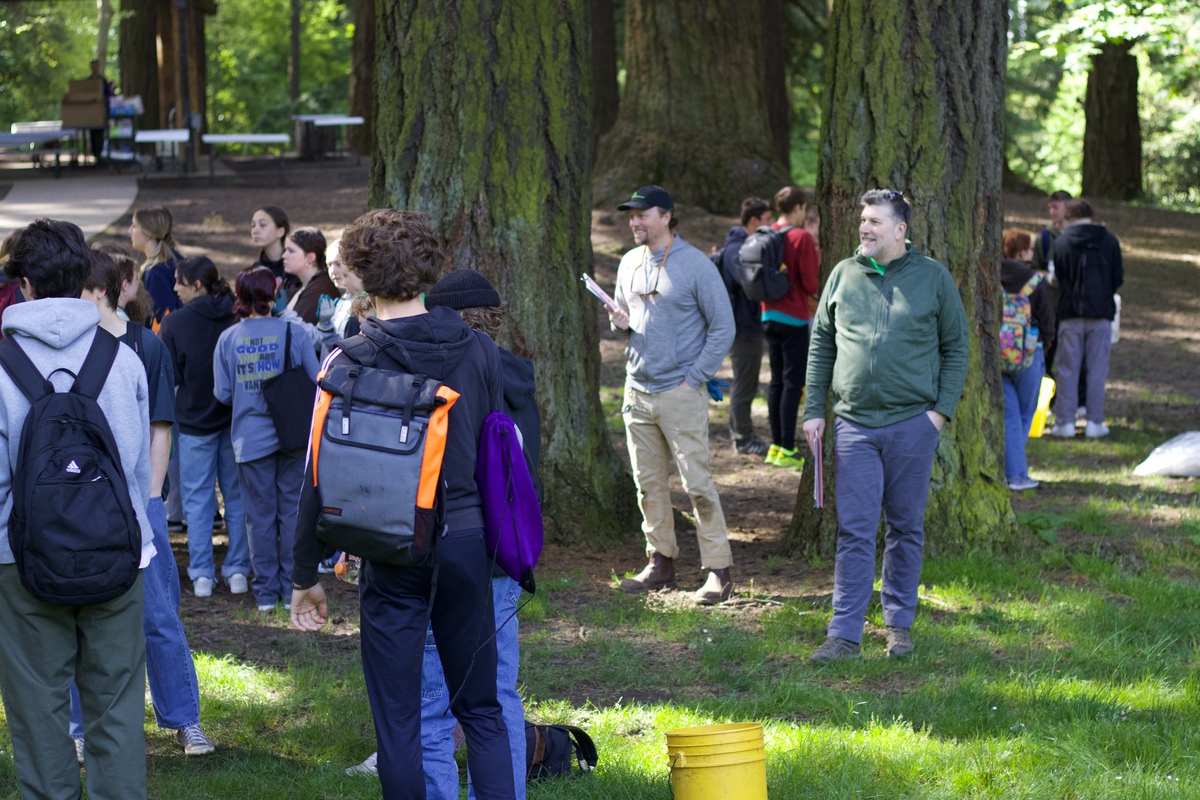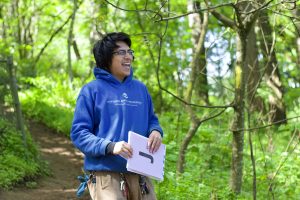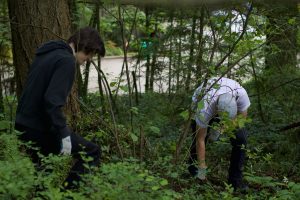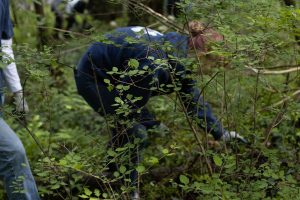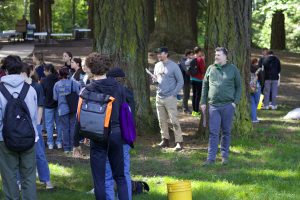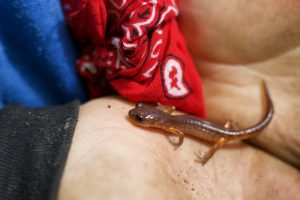La Salle Juniors Clean Up Mount Tabor Alongside the No Ivy League
May 18, 2022
On Tuesday, many juniors from La Salle traveled to Mount Tabor Park with gloves and shears to clean and pull ivy around the park as their class service project. To accomplish this, they coordinated with the No Ivy League, which focuses on educating and empowering youth while removing ivy from Portland parks.
“I just wanted the juniors to get out into the community,” said Ms. Sarah Maher, who is the Director of Service for La Salle. “Be outside in nice weather, community building, and also learn more about invasive species and these awesome parks we have.”
Each guide explained the reason why the students pulled ivy from the park landscape and how it would benefit the ecosystem.
“They explained a lot to us actually, the guide went over how the birds go on a high protein diet, mainly bugs and such, but ivy strands really don’t have any nutritional value and they get in the way,” junior Max Ramirez said.
English ivy, which is common in the Pacific Northwest, is an invasive species of ivy that smothers other plant life as it grows. The plant is dense and can reduce the amount of light that reaches the bottom layer of plants resulting in an insufficient amount of light for the plant to live.
“By pulling away the ivy strands, native plants could grow and help the environment go back to its normal condition, water would be slowed down and stop going into people’s basements, and nature, in general, gets put on a fast-track back to healthy levels,” Ramirez said.
Ms. Maher hopes that students will enjoy being outside of the classroom. “I really hope that it’s just a day to be outside of the class and be together, but also to learn from this awesome group organization called No Ivy about the dangers of invasive species.”
Additional reporting for this piece was contributed by Media Editor Lukas Werner.


